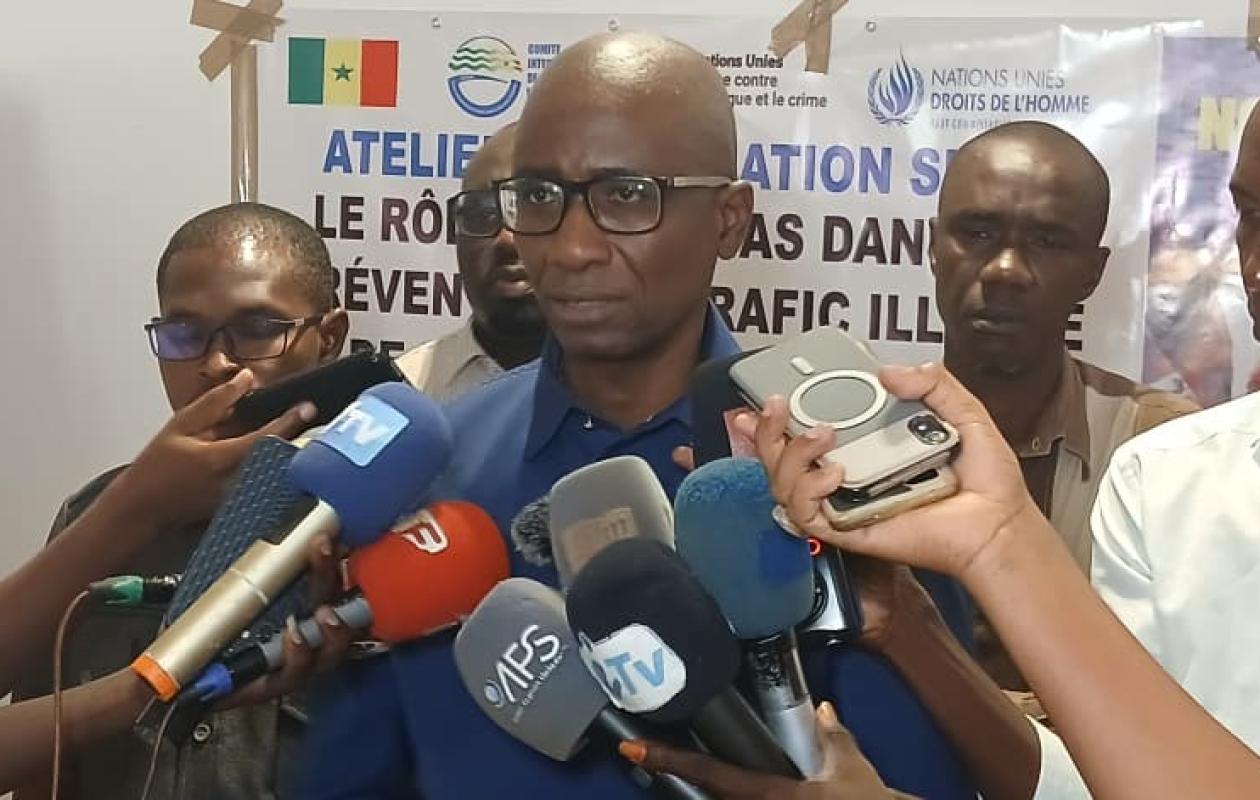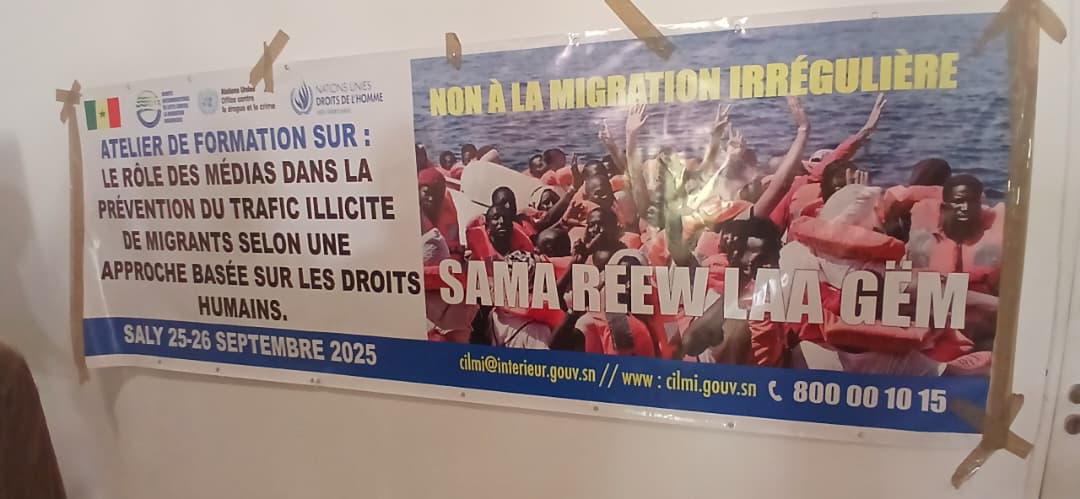
Migration irrégulière : 74 mis en cause déférés au Parquet financier, le CILMI constate une tendance à la baisse
In the fight against irregular migration, Senegalese authorities are making significant progress. According to the Comptroller General of Police, Dr. Modou Diagne, Permanent Secretary of the Interministerial Committee for the Fight against Irregular Migration (CILMI), 74 people involved in the illegal trafficking of migrants have been arrested and brought before the financial judicial pool.
Figures that contradict perceptions
Contrary to popular belief, statistics reveal a remarkable downward trend in irregular migration from Senegal. "I don't think it's going to increase if we really look at the figures and compare 2024 to this year," he said during a training workshop on "the role of the media in preventing migrant smuggling using a human rights-based approach," held in Saly.
The data is telling: during the same period in 2024, 3,606 people were arrested in Senegal, compared to 2,965 this year, a decrease of more than 600 would-be migrants. Even more striking, the number of canoes intercepted has dropped drastically, from 718 in 2024 to just 39 during the same period this year.
"It's practically half if you take the difference," emphasizes the head of CILMI. He puts the recent interceptions of canoes by the navy into perspective: "It's true, we've seen one or two canoes intercepted by the navy in the last few days. That's perhaps why we might think there's a resurgence. No, it's quite the opposite."
This significant decline is the result of sustained efforts by the Senegalese government, coordinated by CILMI. The system in place involves several bodies: "border surveillance, which is carried out by the French Navy, assisted by the army, particularly the Air Force, but also the national police and the gendarmerie, which monitor our coasts," explains Dr. Diagne.

This coordinated mobilization made it possible to intercept numerous canoes before their departure, thus contributing to the general reduction in irregular migratory flows.
Confirmation in the Canary Islands
The downward trend is also confirmed in arrivals to the Canary Islands, the main destination for migrants from the West African coast. The figures speak for themselves: 7,204 sub-Saharan migrants reached the Spanish archipelago this year, compared to 12,103 in the same period in 2024, a reduction of more than 40%.
"So you see that there is a decrease, in any case, in the migratory flow towards the Canary Islands. And that too, we must credit the response that was provided by the State of Senegal," the Permanent Secretary of CILMI welcomes.
Dismantling of trafficking networks
At the heart of this strategy, the fight against criminal networks is bearing fruit. "The 74 people brought before the financial judicial pool are couriers, smugglers. In any case, all those involved in this illicit trafficking of migrants and who truly facilitate the departure of these young people, these women, to Europe," explains Dr. Modou Diagne.
These traffickers exploit the vulnerability of those who are willing to leave, who "defy death because they travel in extremely difficult conditions, both by sea and in the desert."
A worrying phenomenon deserves attention: in the face of increased surveillance of the Senegalese coast, those wishing to leave are turning to neighboring countries. "Even the pirogues we intercepted recently didn't depart from Senegal. So, they departed from Gambia," observes the head of CILMI.
This avoidance strategy pushes many Senegalese to move "to either Gambia, Guinea, or Mauritania to leave." A reality that underlines the importance of regional cooperation.
Aware of this cross-border dimension, the Senegalese authorities are strengthening cooperation with neighboring countries. Dr. Diagne reveals: "Two cooperation agreements have been signed between the State of Senegal and Mauritania, in the fight against irregular migration, but also human trafficking."
The goal is to create a sub-regional network to "provide a common response, a complementarity in the fight against irregular migration." As the head of CILMI points out, "If we manage to block their path here, they will be able, as they are ECOWAS nationals, to go to other countries to leave."
The strategy is not limited to repressive measures alone. "That's why it's also important to implement the national strategy, to ensure that people are well informed about the dangers they face," he insists.
This preventive approach aims to "explain the alternatives that the Senegalese government has put in place to help them train, obtain certified training, have a job, but also be able to work in Senegal, stay there, work there, and not have to risk their lives to go to Europe."
Real dangers as far away as Europe
Recent events in Spain, where migrants have been prosecuted on suspicion of abuses committed against other travelers, illustrate the dangers that persist even after the crossing. "This is an opportunity to draw even more attention to the dangers that exist throughout the crossing among these young people, these women, who are leaving," concludes Comptroller General Diagne.
Commentaires (0)
Participer à la Discussion
Règles de la communauté :
💡 Astuce : Utilisez des emojis depuis votre téléphone ou le module emoji ci-dessous. Cliquez sur GIF pour ajouter un GIF animé. Collez un lien X/Twitter, TikTok ou Instagram pour l'afficher automatiquement.